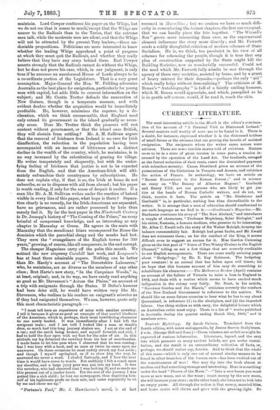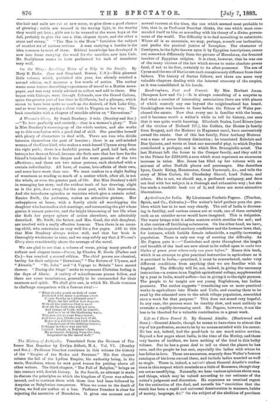Teutonic Mythology. By Jacob Grimm. Translated from the fourth edition,
with notes and appendix, by James Steven Stallybrass. 2 vols. (George Bell and Sons.)—These volumes are as full as might be expected of curious information. Literature, legend, and the oral lore which preserve so many ancient beliefs, are put under contri- bution, and the result is an extraordinary collection of facts, or, perhaps, we should rather say, fancies. And to think that the whole of this mass—which is only one out of several similar masses to be found in other branches of the human race—has been evolved out of the consciousness of man! One may dip into the book almost at random and find something strange and intetesting. Here is something • under the head "Phases of the Moon Into a now house you must move at new moon, not at the wane ; count money by the new moon, she will increase your store ; on the other hand, she loves not to look into an empty purse. All through the notion is that money, married bliss, and home stores will thrive and grow with the growing.light. So
the hair and nails are cut at new moon, to give them a good chance of growing ; cattle are weaned in the waxing light, in the waning they would get lean ; girls are to be weaned at the wane, boys at the full, probably to give the one a slim, elegant figure, and the other a stout and strong." "The Man in the Moon" furnishes the subject of another set of curious notions. A man carrying a burden is the idea common to most of them. Biblical knowledge has developed it now into Isaac carrying the wood for the sacrifice, now into Cain. Mr. Stallybrass seems to have performed his task of translator very well.



































 Previous page
Previous page